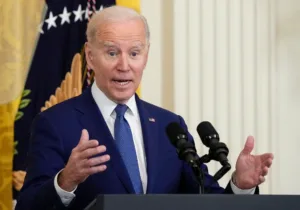The past few years have seen the Middle East pass through a great tribulation. What we see emerging is a new regional order that looks more like the old world than something entirely new. The combination of the signing of the Abraham Accords, the ongoing US withdrawal from the region, the rapid decline of pan-Arab Nationalism, and the rise of a dominant Iran and an aggressive Turkey has driven Arab interests together. It even allowed them to see past decades of conflict with the Jewish state of Israel to find common cause. What is emerging is a return of three ancient regional power centers, would-be Persian and Turkish hegemons, looking west and south respectively, wishing to once more dominate in the domain of their past empires. In the middle is an Arab and Jewish coalition, anxious not to fall prey to their old masters.
The opening for this new order—perhaps more accurately described as an old order—to emerge was set in motion by the regional collapse of the pan-Arab nationalist project. The US invasion of Iraq and deposition of a strongly nationalist Arab dictator, the installment of a regional ethno-faction-driven parliamentary system, followed by the collapse of Syria into civil war and the effective end of the legitimacy of the Assad’s family’s Syrian nationalism have closed the door on the idea of national identities blossoming to overshadow ethnoreligious identities. Extraordinary mass protests by young people in Iraq and Lebanon in the winter of 2019 seemed infused with nationalistic fervor, but the protests were largely a demonstration of frustrations with states that had become riving with factional tensions and corruption. Unfortunately, the successes of these noble movements were modest.
Starting in the Obama administration and intensified in the Trump and Biden administrations, there has been a ten-year lurching, halting, but indomitable move toward disengagement from the region. This can be seen in the ongoing drawdown of not only troops but also interest in Iraq and Syria. It can also be seen in the aggressive campaign to remove US military support from Saudi Arabia’s conflict in Yemen. This project of disengagement has moved in fits and starts, sometimes giving the illusion of ongoing US commitment—like the massive return of the US military and interest in the conflict to defeat the Islamic State. But the initial reticence from Obama to engage and the demand from Trump for a swift conclusion were both expressions of a desire not to be entangled in the region. Even the military’s “by, with, and through” strategy to work with Kurdish allies showed a desire to hold the conflict at arm’s length. The Trump administration certainly gave great energy to the maximum pressure campaign against Iran, yet his overall focus on withdrawal often emboldened Iranian proxy forces fighting across the region, culminating with the dramatic strike on Islamic Revolutionary Guard Corps (IRGC) Commander Qasem Soleimani when he came to parade triumphantly in front of the US embassy in Baghdad. We are already seeing these aggressive policy efforts dissipating under the Biden administration.
America leaves some notable impressions on the region. There is now a Kurdish project that, while not completely successful, loosely holds major territorial regions and has competent, functioning societies with positive economic developments that benefit people. Saudi Arabia has been forced by necessity to fully embrace its role as a peer regional competitor to Iran with an increasing focus on defense. Perhaps most notably, and seemingly miraculously, the US leaves behind Trump’s resounding foreign policy success, the Abraham Accords. This historic normalization of relations between the Gulf states and Israel has set the course for other nations to bury the hatchet with the Jewish state and begin building trade and security partnerships. Thought leaders in Iraq recently called for their leaders to join the Accords. This agreement significantly turns down the volume on the Israeli-Palestinian conflict and shows that the double looming threats of resurgent Turkish and Persian empires are driving decision-making.
As the Persian and Turkish nations increasingly clash across the region in a fight for dominance, it remains to be seen if the Arab peoples can continue to see past their local rivalries and historic animosity toward Israel to focus on the larger threats of their ancient oppressors.








 Live in the DC area? Sign-up for Providence's in-person events list!
Live in the DC area? Sign-up for Providence's in-person events list!